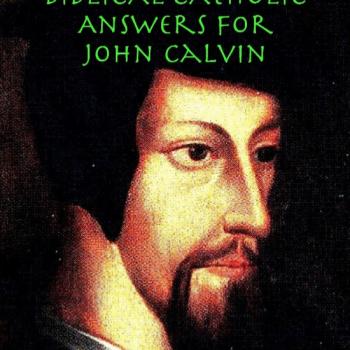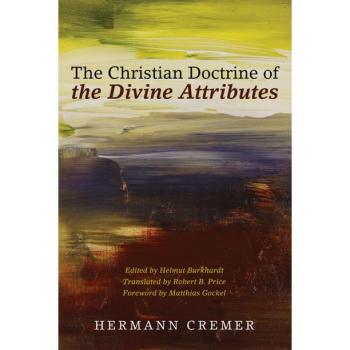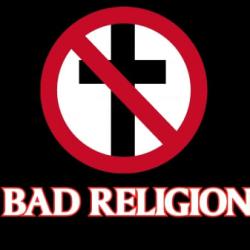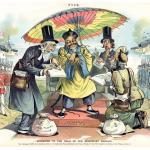Should a Theologian’s Life Affect How We Regard His/Her Theology?
Over the decades of studying and teaching about not only the theologies of Christian theologians past and present but also their biographies I’ve run into a common question. How should we relate their lives to their theologies? To be specific, if there’s something negative in their life story, should that affect how we value their intellectual contributions?
An example that stands out is Paul Tillich. After he died his widow Hannah wrote a scurrilous expose of his sex life. There were rumors before. Reinhold Niebuhr was widely reported to have cut off his friendship with Tillich due to his observations of Tillich’s treatment of women students at Union Theological Seminary. On the other hand, even after Hannah’s expose (if that’s what it was) some friends of Paul’s refused to believe her reports of his philandering. Wolfhart Pannenberg, who taught with Tillich at the University of Chicago and knew him and Hannah well, told me he did not believe those reports and considered Hannah just bitter and angry because Paul was so intensely dedicated to his work. Still, most Tillich biographers think there is truth to Hannah’s story. But even she admitted they had an “open marriage,” so one has to wonder why she was so angry. By her own account they were (especially in their younger days in Germany) pretty “liberated” sexually.
I usually don’t get into that when lecturing on Tillich. I try to stick to his theology and those parts of his biography that directly relate to it—such as his experiences in World War I. By his own account (he wrote two autobiographies) burying his friends was a life and faith altering experience. He suffered at least one nervous breakdown and was hospitalized. I don’t think his faith was ever the same afterwards. I tell students that I think Tillich’s theology is a good example of what happens when a theologian loses his orthodox Christian faith but goes on being a theologian rather than switching to, say, philosophy (as Ernst Troeltsch did).
But students often already know a little about Tillich’s sexual adventures (or misadventures) and ask about it. So I explain what Hannah said very briefly, without graphic details, and encourage students not to dwell on that but to try to understand his theology for itself—but in the light of his own account of how the horrors of World War 1 affected his faith.
Recently I had a very interesting discussion with a scholar of John Howard Yoder’s life and theology. Recently some people who knew Yoder and some Yoder scholars have begun to make quite public allegations about some sexual misdeeds that he admitted to. Some of them apparently involved women who felt he manipulated them sexually. Among Mennonites and Yoder fans this is blowing up into a major controversy. What actually happened and, if the worst did happen, how should it affect our understanding and evaluation of Yoder’s theology? Can his theology stand alone, apart from his biography, or must that part of his life (whatever exactly happened) color study of his theology? I have personally met and talked with one woman Mennonite scholar who cannot read Yoder because of the scandal.
According to the researcher I talked with there’s more to the story than most people know. He and others will bring it to light—not to satisfy curiosity but to shed light on the controversy. What really happened? To what did Yoder himself confess? What was the outcome of the disciplinary process his Mennonite group imposed on him?
But the big lingering question for me, as an admirer of Yoder’s theology (even though I’m not a “Yoderian”) is whether I should try to set all that aside when reading Yoder and just focus on his ideas?
The sad fact is that many, many great heroes of Christian history and theology had sides to their personal lives that we cannot be proud of. To what extent should those affect how we regard their theological contributions and contributions to church reform and renewal? Luther, of course, drank a lot of beer and advised others to do so as well. (His letter to a young friend named Jerome includes advice to drink much beer when the devil tells him not to!) He advised the German nobles to slaughter the rebelling peasants without mercy. He condoned Philip of Hesse’s bigamy. Toward the end of his life he fell into anti-Semitism and wrote essays against the Jews that were resurrected and used by the Nazis. John Knox, the reformer of Scotland, married a teenage girl when he was fifty. Ulrich Zwingli condoned the torture and drowning of Anabaptists—some of them his own former students. John Calvin condoned the execution of Servetus and publicly took responsibility for it. John Wesley couldn’t live with his wife; their marriage was, by all accounts, deeply troubled. Kierkegaard was not only eccentric but went out of his way to offend people including cutting off relations with his close relatives (including his brother who tried to have a good relationship with him). And he broke his engagement to his fiancée without explanation—a terrible faux pas at that time. Jonathan Edwards owned slaves.
All those things are well known. We tend to excuse those men as “children of their own times.” And yet, we tend not to excuse Catholics who did similar things. If you are a Protestant hero you’re forgiven, but not if you were a Catholic pope, bishop or theologian.
I will not name names, but I happen to know of recent well-known theologians who were alcoholics. Some of them were evangelicals. I once knew two students of a very famous evangelical New Testament scholar who told me he often came to class drunk. A very well known Lutheran theologian is an alcoholic who often misses classes and conference sessions where his presence is announced because he is drunk. (I was present at a weekend conference where he was the keynote speaker and he only showed up briefly. After that his absence was obvious. One man who knew him well told me he was in his hotel room too drunk to get out of bed.) A famous Baptist New Testament scholar whose name everyone would recognize died an alcoholic of liver disease. A well-known and influential seminary dean was caught with pornography on his office computer. There was a brief brouhaha about it but people forgave him and he stepped down but remained on the faculty. His books are widely read and studied without people thinking about that episode in his life. It doesn’t have anything to do with his scholarship.
If we were to discount the value of every theologian whose life was in some way scandalous our library shelves would be much less burdened down. And perhaps our theological thinking poorer. And I didn’t even mention all the German theologians and biblical scholars who supported National Socialism!
Having said all that, I have to add this. If those German theologians allowed their pro-Nazi sympathies to infect their writings we would all, I suspect, decline to use them in our courses. So, to the extent that a theologian allowed his infidelities, racial prejudices, wrong political views, to affect his scholarship, I believe we must inevitably either 1) discard his scholarship, or 2) use it but highlight those areas where the scandalous parts of his life affected it.
However, to the extent that the theologian’s scandalous actions did not affect his theology (or biblical scholarship) I see no reason to make much of them. They should probably be mentioned in a biography but there’s no need to reject his whole theology because of them. When I read Tillich, for example, I try to bracket out what I (think) I know about his sex life and garner whatever value I can from them. For example, his expositions of “heteronomy,” “autonomy” and “theonomy” I find very valuable. Likewise his explorations of the tensions in human existence are brilliant. When I get to his doctrine of salvation as “accepting that you are accepted” I sometimes wonder if he was motivated to avoid the subject of guilt. But I still find what he said interesting even if I disagree and suspect somewhere in the deep recesses of his mind and heart he tended to reduce sin to tragedy for personal reasons. But I don’t like psychologizing theologians’ ideas. For that reason I have never read Young Man Luther. I don’t want Erik Erickson’s speculations about Luther’s relationship with his father to infect my interpretation of his theology.
According to Ralph Abernathy, a close friend of Martin Luther King’s and another leader in the civil rights movement, King had extra-marital affairs during his marriage. I have no idea if that is true, but if anyone would know (other than the women) it would be Abernathy. I would like to think, though, that it’s not true. But even if I were to become convinced of it, it would not affect how I regard the truth and power of King’s ideas and his movement and legacy.
















